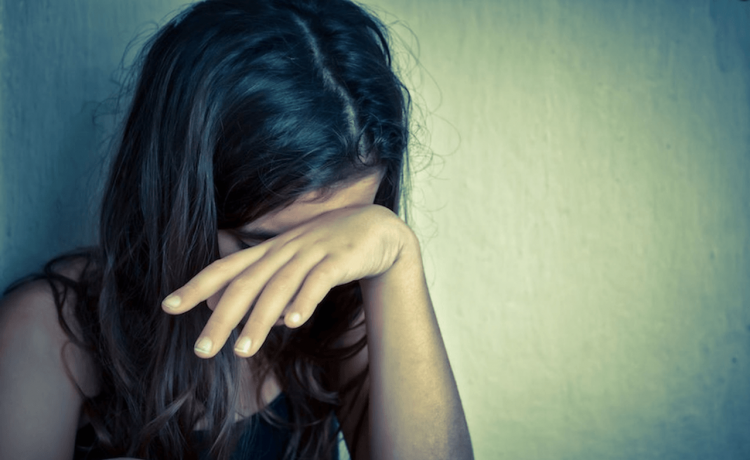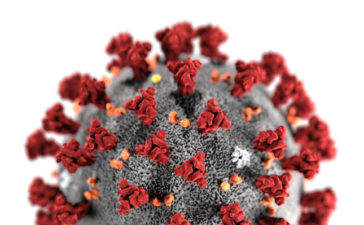As the Covid-19 has led to rise in mental health issues, experts have suggested some simple ways to overcome fear and anxiety about the pandemic and thus avoid feeling depressed.
The World Mental Health Day this year is being celebrated at a time when the world is in the grip of the pandemic, which is affecting mental health of millions of people.
Fear and anxiety about a new disease and what could happen can be overwhelming and cause strong emotions in adults and children. Public health actions, such as social distancing, can make people feel isolated and lonely and can increase stress and anxiety, says Dr. Charan Teja Koganti, Consultant Neuropsychiatrist, KIMS Hospitals, Kondapur.
He observed some changes among people like excessive worry about own health and the health of loved ones, financial situation or job, changes in eating patterns, difficulty sleeping, difficulty concentrating and memory recall, worsening of chronic physical problems like hypertension, cardiac conditions, diabetes and worsening of mental health conditions like OCD, anxiety disorder, panic disorder, increased use of substances like tobacco, alcohol, etc. and changes in mood, including mood swings, irritability, low mood, low energy levels, etc.
Dr. Charan Teja believes that people can take care of their mental health in a pandemic by following a few simple methods.
“Use practical ways to relax. Relax your body often by doing things that work for you — take deep breaths, stretch, meditate, wash your face and hands, or engage in pleasurable hobbies. Pace yourself between stressful activities, and do a fun thing after a hard task. Use time off to relax — eat a good meal, read, listen to music, take a bath, or talk to family. Talk about your feelings to loved ones and friends often.”
One should keep himself or herself healthy by eating healthy foods, and drink water, avoid excessive amounts of caffeine and alcohol, by not using tobacco or illegal drugs, with enough sleep and rest and doing physical exercise.
He also suggested that people should limit consumption of news. “Set limits on how much time you spend reading or watching news about the outbreak as it can fuel anxiety and fear. You will want to stay up to date on news of the outbreak, particularly if you have loved ones in places where many people have gotten sick. But make sure to take time away from the news to focus on things in your life that are going well and that you can control.”
One should also pay attention to body, feelings and spirit. Recognize early warning signs of stress. Recognize how your own past experiences affect your way of thinking and feeling about this event, and think of how you handled your thoughts, emotions, and behaviour around past events.
“Know that feeling stressed, depressed, guilty, or angry is common after an event like an infectious disease outbreak, even when it does not directly threaten you. Connect with others who may be going through the same,” he advised.
“Talk with people you trust about your concerns and how you are feeling. If your family is away you can bond with them virtually. Staying connected can enhance our emotional wellbeing. Look for ways to stay connected to friends and family. A good way to do this is to share the activities you’re engaging in virtually with friends that also enjoy this activity.”
As the pandemic has disrupted most people’s daily routines, and made it harder to remain productive, he underlined the importance of setting a routine. Stick to it as much as you can, allowing yourself flexibility to adjust as needed based on things that come up during your day. This will also help you stay productive, even if your productivity level doesn’t remain consistent with pre-pandemic levels.
Since work from home has become essential, Dr. Charan Teja suggested a few tips. “Get Dressed. You don’t need to dress as formally as you might for work, but the simple act of changing clothes serves as a signal that it’s time to wake up and get things done. Designate a workspace or home office. Try to make your workspace comfortable with a chair you can sit in for eight hours a day and a few decorations. Find an area with good natural lighting if at all possible.
“Entering your workspace will help you turn “on” at the beginning of the day and get down to work. Similarly, leaving your workspace will also help you turn “off” at the end of the day and fully disengage. Keep clearly defined working hours. Communicate with the people you live with to establish boundaries so you can cut down on distractions during the workday — and then disconnect and give the people you care about your full attention.”
He also underscored the need to reach out for help. “Don’t assume that you’d automatically get better with time. A thorough assessment & treatment by a mental health professional is a must.”
Divya Gupta, Psychological Counsellor, Continental Hospitals, says that the best method to avoid feeling depressed is to get on with life and ensure the mind is preoccupied with positive thoughts and by changing perspective towards the incidents/situations which make one feel distressed.
“Let’s take the example of Covid-19 pandemic for now. The best solution to overcome trauma is to avoid talking about the virus with people, especially those who tend to be negative. Turn to the people in your life who are thoughtful, level-headed, and good listeners,” she said.
Dr Srinivas Kandrakonda, Consultant – Neuro Psychiatrist, Medicover Hospitals, said while excessive use of technology is not good, sometimes technology can help overcome problems, like those associated with mental health. “If an individual does not find solace among people, there is nothing wrong in seeking technological help. Mobile applications like 7Cups chat or other similar products could be of great help. People suffering from any form of emotional or mental complications can seek medical attention using numerous healthcare consulting applications, which also help in ensuring anonymity of the individual.”
World Mental Health Day celebrated on October 10 every year aims to raise awareness in the global community about the critical mental health agendas. This year’s theme is “Mental health for all — Greater investment — Greater access. Everyone, everywhere.”
According to experts, mental health is one of the most neglected areas of public health. Close to one billion people are living with a mental disorder, three million people die every year from the harmful use of alcohol and one person dies every 40 seconds by suicide.





